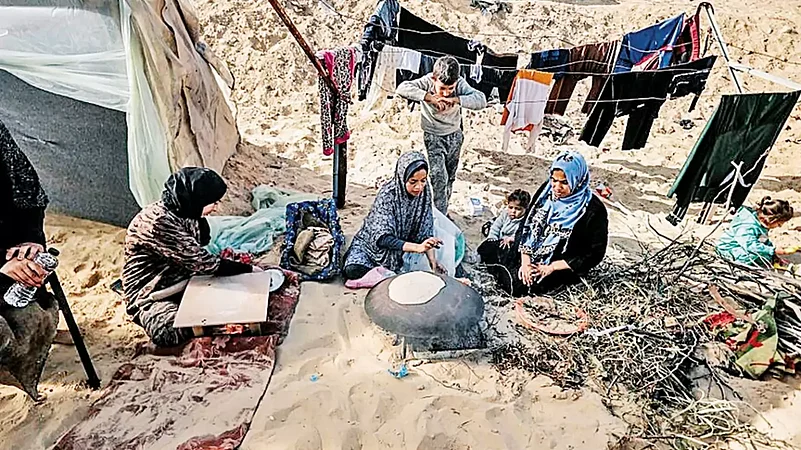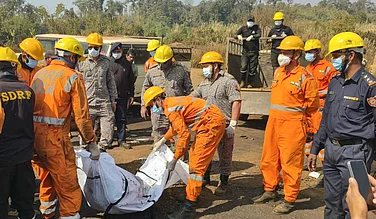November 25
The humanitarian pause agreement was meant to allow aid into the Gaza Strip. And yet, the supermarket shelves were empty. People were searching for salt, yeast and wheat flour to make bread. Everyone was desperately searching for ways to bring bread back into their lives, in supermarkets or on the streets—but no one can find.
A sign stapled on a supermarket entrance read: “WE DO NOT HAVE YEAST OR SALT”.
We went to Deir El Balah’s marketplace searching for food, but we could not find any. Tomatoes, cucumbers, onions, eggplant and oranges are all you can find. We even searched for winter clothes and blankets; we also did not find any.
If some supermarkets had anything at all on their shelves, it was soap and shampoo.
People are still going to shops, navigating aisles in the hope of finding anything they can return with to their children yearning for sweets. But how do you soothe a child crying for chocolate when you cannot even make them bread?
There is not enough food or aid reaching all of the people in the Gaza Strip.
December 1
If death doesn’t come from airstrikes, it will come from starvation.
Today, we were sharing a bottle of juice that a friend managed to find. We were rationing it among ourselves when a massive explosion unexpectedly occurred close to where we are staying, we ran into each other fearing another explosion. This was the last bottle of juice we had in stock. I hadn’t managed to take a sip.
Today, I was intensely hungry. The only thing I could find was zaatar (thyme) and some bread that my friend’s mother made over firewood. To secure some wheat flour to bake bread, families can pay astronomical amounts of money. In one area inside Gaza, a bag of wheat flour—a rare find these days—was 400 NIS (US$ 107).
Food options are now a thing of the past. We no longer have a choice of what to eat, we eat what is available.
I yearned for something sweet. It has been so long without anything that I have forgotten the taste of pancakes with bananas.
December 4
We have officially run out of food. We went to the market to look for something to eat and returned with cucumbers. We are drained, dehydrated, starving and cold.
People in Gaza city do not even have the freedom to search for food. Anyone who moves would be risking their lives. Neighbours have opened their doors to share whatever they have between them.
Now that the middle area of Gaza has been cut off, no aid has entered. People were asking to move but we have no way to leave and nowhere to go. The situation has been devastating more than ever.
We are starving. We are trapped. We are under non-stop explosions, airstrikes, artillery shelling, gunboat fire. Everything, everywhere, all at once.
We have no access to water—even dirty water—electricity, food, nothing.
This is an excerpt from an article titled ‘Diary from Gaza: If death doesn’t come from airstrikes, it will come from starvation’, written by Hind Khoudary. It was first published on the World Food Programme website on December 12, 2023.
(Compiled by Swati Subhedar)
(This appeared in the print as 'We Want Bread Back Into Our Lives')
































